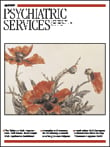T here is a place in our busy lives for spending a little time with a dying patient. When I have taken such time, I have seen painful things and good things. My patients have expressed their anger and their hopes to me. And I hoped with them, for a cure, and for an end to their pain, and for peace.
I laughed with them, too. They faced death as I had faced it. We had nothing to lose by laughing. Quirky, eccentric funny—my patients were a joy to be with and I cherish the time I spent with them.
At age 40, when most physicians are just hitting their professional stride, Dr. Steven Hsi, a young family practitioner in Albuquerque, New Mexico, was diagnosed with Takayasu's arteritis—a rare, poorly understood multisystem disease that mainly targets the aorta. At that moment, he entered a parallel universe as a patient with a serious illness. Over the next four years, he chronicled his life as the disease and the effects of three cardiac surgeries and numerous drugs played themselves out. After his death in 1997 at age 44, his wife, Beth Corbin-Hsi discovered her husband's extensive narrative journals about his illness. She and a journalist friend Jim Belshaw fashioned these writings into a remarkable book, Closing the Chart: A Dying Physician Examines Family, Faith, and Medicine, as a tribute to Dr. Hsi—a true labor of love.
There are lessons on every page, lessons to make us better caregivers, more discerning patients, and better advocates for family members and friends who are sick.
For years, I had engaged in perilous denial that would have resulted in a finger-wagging lecture from me had I seen such behavior in one of my patients. When denial finally crumbled and treatment began, medicines flowed into my body that changed me physically and psychologically until I raged at the most inconsequential acts of my children and imagined slights by my wife.
Recently, I spoke with a colleague whose partner has colon cancer. To get a second opinion, they traveled from their small town to a prestigious urban teaching center that enjoys an international reputation. My colleague said that he and his wife were treated coldly and impersonally there, and the treatment recommendations did not differ substantially from those obtained locally.
Hsi learns these same lessons when he travels to a university medical center in California. He undergoes surgery not available in New Mexico but at the price of being treated as an "it" rather than as a person. If my colleague's partner and Dr. Hsi were treated in this way, one can only wonder how people with no professional affiliations are cared for in these so-called centers of excellence.
Dr. Hsi's journals reveal great sadness through his cries of loss, but they also lead him to a new appreciation of his spiritual self; a side many of us ignore until we need it.
Waking or asleep,
Thou of death must deem
Things more true and deep
Than we mortals dream,
Or how could thy notes flow in such a crystal stream?
We look before and after,
And pine for what is not:
Our sincerest laughter
With some pain is fraught;
Our sweetest songs are those that tell of saddest thought.
Medical care is only one variable in the healing equation. Family is another, community a third. In my years of practice, I previously had not considered the importance of community. The Hsis were members of a Presbyterian congregation that came together to aid them in their time of need. The congregation started a Thank God It's Fellowship (TGIF) circle to help with meals, chauffeuring kids, and prayer circles (which Hsi at first rejected). A patient's community is one part of the care system that most physicians (at least) are oblivious to.
How should we honor Steven Hsi, his family, and his book? By spending a little time with him. You will come to see painful things and good things, too. You will value the time spent with Steven, Beth, his family, friends, and church.
Every reader will take away different lessons from this book based on his or her role, age, and experience. This would be an ideal book for group study by medical and nursing students with some senior physicians, patients, and family members. What a great learning experience for all participants!
If I haven't been able to convince you to read Closing the Chart by now, I doubt more verbiage will help. I exhort you to pick up and read this humble story. Nothing I have encountered in the medical narrative genre has been more worthy of my time.

